Today Current Affairs: 13th December 2021 for UPSC IAS exams, State PSC exams, SSC CGL, State SSC, RRB, Railways, Banking Exam & IBPS, etc
Table of Contents
Black Box Of The Planet:

Australian scientists and artists are going to make black box of the planet to hold the world accountable for their actions by creating a black box of the planet
- The box will be constructed in Tasmania, an Australian island state off the south coast.
- It will be made with 3-inch thick steel and covered with solar panels.
- It will operate much like a plane’s flight recorder, which records an aircraft’s final moments before crashing.
- The storage drives inside Earth’s Black Box are designed to last for around 30 to 50 years.
- The black box will be around the size of a city-bus, and inside there will be storage drives that record climate change conversations and also atmospheric carbon dioxide levels and average temperatures
- Two different types of data will be collected and stored inside the monolith.
- It will collect climate-change-related data like land and sea temperature measurements, species extinction, energy consumption, human population, ocean acidification, and atmospheric CO2 levels.
- It will collect contextual data, like newspaper headlines and trending stories, key news stories and social media posts.
- Reason for choosing the Tasmania: Tasmania was chosen for its relative geopolitical and environmental safety, and the monolith will be designed to be resilient against threats including cyclones, earthquakes and, with its sloped walls, attacks by vandals.
- Black box will actually help in preventing a major climate change catastrophe.
- Climate change is one of the gravest threats humanity faces and is exacerbating economic and health inequalities, increasing the frequency and intensity of natural disasters and threatening the world’s food supply.
SAMPANN Project:
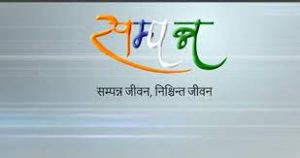
Over one lakh people have received pensions directly in their bank accounts through the SAMPANN (System for Accounting and Management of Pension) project.
- It was launched in 2018. It is a seamless online pension processing and payment system for Department of Telecommunications pensioners.
- It provides direct credit of pension into the bank accounts of pensioners.
- It is an ambitious project being implemented by the Ministry of Communications.
- It has helped the Department in faster settlement of pension cases, improved reconciliation/auditing and ease of accounting.
- It has also been instrumental in settling close to 76000 BSNL Voluntary Retirement Scheme 2019 cases in a short span of 6 months.
- It is a system with a flexible design which enables it to accommodate ever expanding requirements.
- It provides e-Pension payment orders which make the payment process easier and hassle-free.
- Timely settlement of pension cases.
- Every pensioner gets access to key information like payment history along with a login option.
- Login for each pensioner enables access to key information like payment history.
- Online submission of grievances and timely SMS alerts.
Ramanujan Prize:
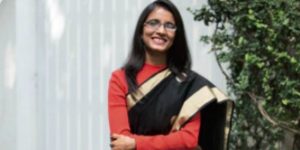
The Ramanujan Prize for Young Mathematicians from developing countries has been given to Professor Neena Gupta.
- She is a mathematician at the Indian Statistical Institute in Kolkata and has been awarded for her outstanding work in affine algebraic geometry and commutative algebra.
- She is the third woman to receive the Ramanujan Prize.
- Her solution for solving the Zariski cancellation problem, a fundamental problem in Algebraic Geometry, earned her the 2014 Young Scientists Award of the Indian National Science Academy.
- The Ramanujan Prize for Young Mathematicians from developing countries has been awarded annually since 2005.
- It is administered by the Abdus Salam International Centre for Theoretical Physics (ICTP) jointly with the Department of Science and Technology (DST) Government of India and the International Mathematical Union (IMU).
- ICTP: Founded in 1964 by the late Nobel Laureate Abdus Salam, it seeks to accomplish its mandate by providing scientists from developing countries with the continuing education and skills that they need to enjoy long and productive careers.
- IMU: It is an international non-governmental and non-profit scientific organization, with the purpose of promoting international cooperation in mathematics.
- It is a member of the International Science Council (ISC).
- DST: The DST has agreed to fund the Prize, starting with the 2014 Prize.
- It has been supported by DST in the memory of Srinivasa Ramanujan, a genius in pure mathematics who was essentially self-taught and made spectacular contributions to elliptic functions, continued fractions, infinite series, and analytical theory of numbers.
Eligibility & Prize:
- It is awarded to a researcher from a developing country who is less than 45 years of age on 31st December of the year of the award, and who has conducted outstanding research in a developing country.
- Researchers working in any branch of the mathematical sciences are eligible.
- The Prize carries a USD 15,000 cash award.
Regional Anti-Terrorist Structure Of Shanghai Cooperation Organization (RATS-SCO):
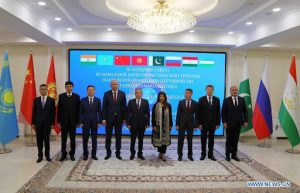
India assumed the Chairmanship of Council of Regional Anti-Terrorist Structure of Shanghai Cooperation Organization (RATS-SCO) in 2021 for a period of one year.
- In pursuance of this, the National Security Council Secretariat (NSCS) in association with Data Security Council of India (DSCI), organized a Seminar on Securing Cyberspace in the Contemporary Threat Environment.
- SCO-RATS is a permanent body of the SCO and is intended to facilitate coordination and interaction between the SCO member states in the fight against terrorism, extremism and separatism.
- The main functions of SCO-RATS are coordination and information sharing.
- As a member, India has actively participated in the activities of SCO-RATS.
- India’s permanent membership would enable it to generate greater understanding among members for its perspective.
About Shanghai Cooperation Organization(SCO):
- The Shanghai Cooperation Organization (SCO) was established as a multilateral association to ensure security and maintain stability across the vast Eurasian region.
- It envisages joining forces to counteract emerging challenges and threats, and enhance trade, as well as cultural and humanitarian cooperation. It was created in 2001.
- Prior to the creation of SCO in 2001, Kazakhstan, China, Kyrgyzstan, Russia and Tajikistan were members of the Shanghai
- Shanghai Five (1996) emerged from a series of border demarcation and demilitarization talks which the four former Soviet republics held with China to ensure stability along the borders.
- Following the accession of Uzbekistan to the organisation in 2001, the Shanghai Five was renamed the SCO.
- The SCO Charter was signed in 2002, and entered into force in 2003. The SCO’s official languages are Russian and Chinese.
- SCO has two Permanent Bodies:
- SCO Secretariat in Beijing,
- Executive Committee of the Regional Anti-Terrorist Structure (RATS) in Tashkent.
- The Chairmanship of SCO is by rotation for a year by Member States.
- India and Pakistan became members in 2017.
- Member countries: Kazakhstan, China, Kyrgyzstan, Russia, Tajikistan, Uzbekistan, India, Pakistan, Iran.
Protests In Balochistan:
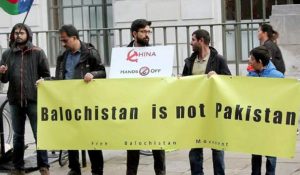
Over the last few weeks,there have been continuous protests in Gwadar, Balochistan against mega development plans of the port city as part of the China-Pakistan Economic Corridor.
- The protesters have sought to draw attention to marginalisation of the local people in the development of the port.
- Pakistan claims that India has been supporting these protests.
About Balochistan:
- Balochistan is one of the four provinces of Pakistan.
- It is least populated even though it is the largest province in terms of land size.
- It is populated in ethnic Baloch people which can be found in modern day Iran and Afghanistan though the majority of Baloch can be found in Balochistan.
- Balochistan is rich in natural gas and oil and is one of the most important regions of Pakistan.
Uprising in Balochistan:
- During the withdrawal of the British from the Indian subcontinent, the Kingdom of Balochistan was offered the same offer, either to join India, join Pakistan or remain independent.
- The king of Balochistan chose to remain independent and it did remain independent for nearly a year.
- In the year 1948, the Pakistan government, with a combination of military and diplomacy, took control of the region and made it into a part of Pakistan.
- Due to lack of development and human rights violations in the region done by the Pakistan military and terror groups, the insurgency in Balochistan has been active since 1948.
- Pakistan claims that India has been supporting these rebel fighters with arms and intelligence.
- India has long maintained a political stance of not interfering in the internal matters of Pakistan or any other country.
- Despite Pakistan repeatedly bringing up the Kashmir issue over the years, India had maintained silence on Balochistan.
- However, in 2016, remarks on Balochistan came in the immediate aftermath of the Independence Day celebration in Pakistan that was dedicated to the independence of Kashmir.
- India’s response was quick with India’s Prime Minister referring to atrocities of Baloch people in his Independence speech in 2016
About CPEC:
- The CPEC is a bilateral project between Pakistan and China.
- It aims to link the Western part of China (Xinjiang province) to the Gwadar Port in Balochistan, Pakistan via Khunjerab Pass in the Northern Parts of Pakistan.
- It is intended to promote connectivity across Pakistan with a network of highways, railways, and pipelines accompanied by energy, industrial, and other infrastructure development projects.
- It will pave the way for China to access the Middle East and Africa from Gwadar Port, enabling China to access the Indian Ocean.
- CPEC is a part of the Belt and Road Initiative.
- The BRI, launched in 2013, aims to link Southeast Asia, Central Asia, the Gulf region, Africa and Europe with a network of land and sea routes.
Imaging X-ray Polarimetry Explorer Or IXPE:
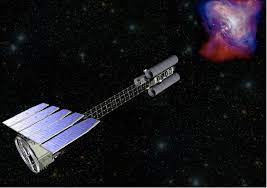
NASA launched a new mission named Imaging X-ray Polarimetry Explorer or IXPE
- Onboard SpaceX’s Falcon 9 rocket, it was sent to its orbit from NASA’s Kennedy Space Center in Florida. IXPE observatory is a joint effort of NASA and the Italian Space Agency.
- The mission will study “the most extreme and mysterious objects in the universe – supernova remnants, supermassive black holes, and dozens of other high-energy objects.”
- The mission’s primary length is two years and the observatory will be at 600 kilometers altitude, orbiting around Earth’s equator.
- IXPE is expected to study about 40 celestial objects in its first year in space.
- This new mission will complement other X-ray telescopes such as the Chandra X-ray Observatory and the European Space Agency’s X-ray observatory, XMM-Newton.
Saryu Canal National Project:

Prime Minister Narendra Modi will inaugurate the Saryu Canal National Project in Balrampur district of Uttar Pradesh.
- The project involves interlinking of five rivers – Ghaghara, Saryu, Rapti, Banganga and Rohin.
- The Saryu Canal National Project starts from the Saryu Barrage at Bahraich.
- The main canal is 318 km long and many sub canals with a length of over 66 hundred kilometres have been linked to it.
- The project has been completed at a cost of around 10,000 crore rupees, of which around 50 percent funds were made available in the last four years.
- The project will provide assured water for irrigation purposes for over 14 lakh hectares of land and will benefit about 29 lakh farmers in over 6200 villages.
- It will benefit nine districts in Eastern Uttar Pradesh – Bahraich, Shravasti, Balrampur, Gonda, Siddharthnagar, Basti, Sant Kabir Nagar, Gorakhpur and Maharajganj.
Inclusion Of Ladakh Under The Sixth Schedule Of The Constitution:
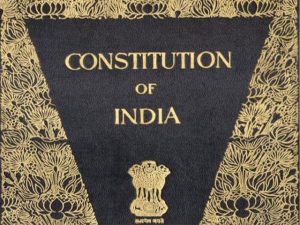
Various civil society groups in Ladakh have been demanding inclusion of Ladakh under the Sixth Schedule of the Constitution.
- The demand for Sixth Schedule started after they felt that the Ladakh Autonomous Hill Development Council (LAHDC) in current form can no longer protect the interest of tribal as it did not have power to legislate or frame rules on subjects like land, jobs, and cultures.
- It is estimated that more than 90% of Ladakh’s population is tribal. The primary Scheduled Tribes (STs) in Ladakh are Balti Beda, Bot (or Boto), Brokpa (or Drokpa, Dard, Shin), Changpa, Garra, Mon and Purigpa.
- Thereby several distinct cultural heritages of these communities in Ladakh region needs to be preserved and promoted.
About the Sixth Schedule:
- It protects tribal populations and provides autonomy to the communities through creation of autonomous development councils that can frame laws on land, public health, agriculture and others.
- As of now, 10 autonomous councils exist in Assam, Meghalaya, Tripura and Mizoram.
- This special provision is provided under Article 244(2) and Article 275(1) of the Constitution.
Key provisions:
- The governor is empowered to organise and re-organise the autonomous districts.
- If there are different tribes in an autonomous district, the governor can divide the district into several autonomous regions.
- Composition: Each autonomous district has a district council consisting of 30 members, of whom four are nominated by the governor and the remaining 26 are elected on the basis of adult franchise.
- Term: The elected members hold office for a term of five years (unless the council is dissolved earlier) and nominated members hold office during the pleasure of the governor.
International Solar Alliance (ISA):

The UN General Assembly has conferred Observer Status on the International Solar Alliance (ISA), a historic decision which India said would help provide for a well-defined cooperation between the alliance and the UN that would benefit global energy growth and development.
- UN confers Observer Status on Solar Alliance
- The ISA was conceived as a joint effort by India and France to mobilise efforts against climate change through the deployment of solar energy solutions.
- It was presented by the leaders of the two countries at the 21st Conference of Parties (COP21) to the United Nations Framework Convention on Climate Change (UNFCCC) held in Paris in 2015.
- The General Assembly, based on the Sixth Committee report, adopted resolution 76/123 & unanimously decided to invite the International Solar Alliance to participate in the sessions & work of the General Assembly in the capacity of an ‘Observer’,” UN General Assembly President Shahid tweeted.
Summit For Democracy:

Democracies should jointly deal with social media and cryptocurrencies, Prime Minister Narendra Modi said in a virtual address at the Summit for Democracy, hosted by U.S. President Joe Biden.
- The Summit for Democracy was a virtual summit hosted by the United States “to renew democracy at home and confront autocracies abroad” on December 9–10, 2021.
- The three themes are defending against authoritarianism, addressing and fighting corruption, and advancing respect for human rights.
- The summit was convened by Mr. Biden to strengthen democracies around the world.
- Biden announced the establishment of the Presidential Initiative for Democratic Renewal, under which the administration plans to provide $424.4 million for supporting free and independent media, fighting corruption, strengthening democratic reforms, advancing technology for democracy, and defending free and fair elections.
Beti Bachao Beti Padhao Scheme:

The Parliamentary Committee on Empowerment of Women has noted in its report that the Government spent 80% of the funds under the ‘Beti Bachao, Beti Padhao’ (BBBP) scheme on media campaigns.
- Over the last six years, through focussed advocacy BBBP has been able to capture the attention of political leadership and national consciousness towards valuing the girl child.
- The government must now revisit this strategy and invest in measurable outcomes in health and education for girls.
About BBBP:
- Launched in January 2015 with the aim to address sex-selective abortion and the declining child sex ratio, which was at 918 girls for every 1,000 boys in 2011.
- The programme is being implemented across 640 districts.
- It is a tri-ministerial effort of Ministries of Women and Child Development, Health & Family Welfare and Human Resource Development
- As per the Ministry of Health, the sex ratio at birth is showing promising trends of improvement and has improved by 16 points from 918 (2014-15) to 934 (2019-20).
- Health percentage of first trimester Antenatal Care (ANC) has shown an improving trend from 61 per cent in 2014-15 to 71 per cent in 2019-20.
- The education gross enrolment ratio of girls in the schools at the secondary level has also improved from 77.45 per cent (2014-15) to 81.32 per cent (2018-19-provisional figures).
Sedition Law:
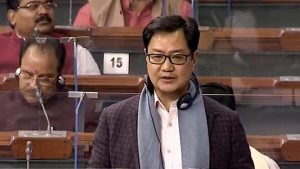
The Ministry of Home Affairs (MHA) has clarified that there is no proposal under consideration to scrap Section 124A of the Indian Penal Code (IPC) that deals with sedition.
- The sedition law has been indiscriminately used against critics, journalists, social media users, activists and citizens for airing their grievances about the governments COVID-19 management, or even for seeking help to gain medical access, equipment, drugs and oxygen cylinders, especially during the second wave of the pandemic.
- Section 124A of the IPC states, “Whoever, by words, either spoken or written, or by signs, or by visible representation, or otherwise, brings or attempts to bring into hatred or contempt, or excites or attempts to excite disaffection towards, the government established by law in shall be punished with imprisonment for life, to which fine may be added, or with imprisonment which may extend to three years, to which fine may be added, or with fine.”
- The sedition law has been in controversy for far too long. Often the governments are criticized for using the law — Section 124-A of the Indian Penal Code (IPC) — against vocal critics of their policies.
- Therefore, this Section is seen as a restriction of individuals’ freedom of expression and falls short of the provisions of reasonable restrictions on freedom of speech under Article 19 of the Constitution.
- The law has been in debate ever since it was brought into force by the colonial British rulers in 1860s. Several top freedom movement leaders including Mahatma Gandhi and Jawaharlal Nehru were booked under the sedition law.




